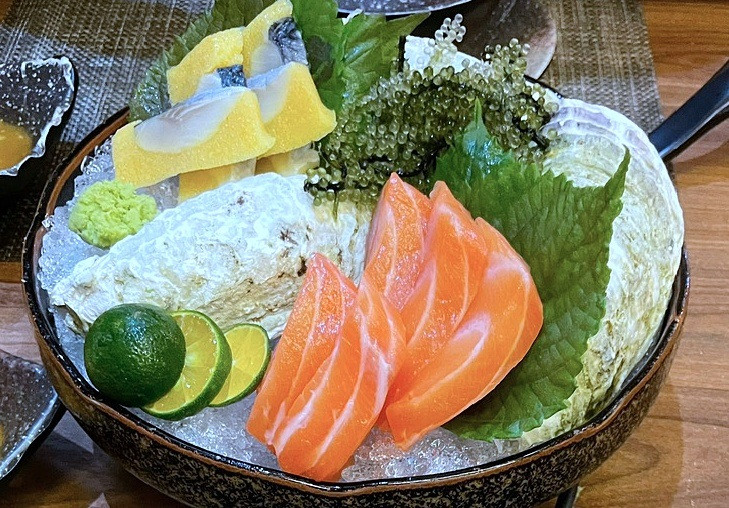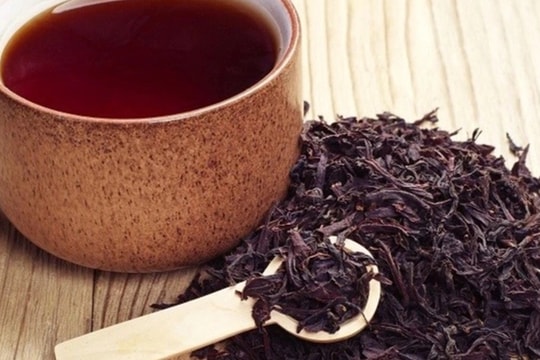5 foods to limit and foods to eat to live healthy and long
According to experts, the ideal diet to prolong life is mainly vegan, eating less fruit and more vegetables, eating beans, nuts, fish, etc. Fasting safely also contributes to longevity.
Professor Valter Longo has been studying longevity in Italy for nearly 20 years. In 1989, he officially began his research into what it takes to live to 100 and beyond.
He is currently Director of the Cancer and Longevity Laboratory at the IFOM Institute of Molecular Oncology in Milan, Italy. He is also Director of the Longevity Institute, University of Southern California-Los Angeles (USA).
Italy is the perfect place for Longo's work, as it's home to several regions where people live longer than most, including Sardinia, one of the first regions longevity researcher Dan Buettner designated as a "blue zone."
One of Dr. Longo's biggest takeaways from his research is that "diet matters most."
The best way to eat to prolong life
Here's what this expert says about the best way to eat for longevity.
Dr. Longo toldCNBC Make It: "The longevity diet I propose draws from a variety of diets, including the Okinawa diet and the Mediterranean diet."
Ideally, he says, a longevity diet would adhere to the following characteristics:
- Mostly vegan
Many scientific studies have proven that it is beneficial for health, reducing the risk of heart disease, stroke, diabetes, and cancer. Vegetarian diets use more vegetables and fruits, and are lower in fat and cholesterol than meat-based diets.
However, if not done properly and nutritionally balanced, a vegetarian diet can lead to nutritional deficiencies, especially in nutrients such as protein, calcium and vitamin B12. Deficiencies in these nutrients can lead to other health problems such as anemia, osteoporosis, malnutrition.

Vegetables containing lots of fiber bring many health benefits. Photo: NP
- Eat less fruit but eat more vegetables
Eating green leafy vegetables like spinach and kale supports brain health. Fiber-rich foods have been linked to a reduced risk of developing depression.
They are also packed with essential nutrients including vitamin A, folate, vitamin C, iron, vitamin K, potassium, and calcium. Leafy greens can easily be mixed into salads with other nutritious fruits and vegetables.
- Legumes
You should eat beans every day to strengthen your immune system. They are rich in protein, fiber, antioxidants and minerals such as magnesium and iron. Some types of beans you can consider adding to your meals are lentils, black beans, chickpeas, soybeans, lima beans, kidney beans…
The high fiber content of beans also makes eating them a great choice for a healthy brain.
According to the Center for Clinical Nutrition, K Hospital, beans contain phenolic compounds and indigestible fermented components that have anti-inflammatory effects.
Their peels contain anthocyanin compounds and high levels of soluble fiber with a low glycemic index. This helps slow down the absorption of glucose in humans and lower blood sugar levels in diabetics.
- Nuts
Nuts are rich in omega-3 fatty acids, which help keep your brain cells healthy and reduce inflammation.
Sunflower seeds are also one of the best plant sources of vitamin B5. Nuts, especially hazelnuts and pecans, are also rich in polyphenols. Foods rich in polyphenols are extremely important because they have anti-inflammatory and antioxidant properties.
- Whole grains
Whole grains are rich in both soluble and insoluble fiber, both of which provide benefits for the digestive system.
It is also a food that is very diverse in nutrients, including B vitamins, typically niacin, thiamine, folate; minerals such as zinc, iron, magnesium, manganese; easily absorbed plant-based proteins; groups of plant compounds including polyphenols, stanols and sterols...
These substances help solve the problem of the body's nutritional needs; participate in a series of life functions, ensuring these functions operate optimally.

Salmon provides a lot of vitamin B which is very good for health. Illustration: N. Phuong
- Eat fish 3 or 4 times a week
Salmon is a favorite among experts because it is rich in B vitamins, which are good for brain health. Fish and shellfish are lower in cholesterol than red meat and are a better choice for a healthy heart.
5 foods to limit
From 20 to 70 years old, he also recommends that people should not eat red meat, not eat white meat, maybe 2 or 3 eggs per week at most, eat very little cheese and very few animal products.
There are 5 types of foods that Dr. Longo suggests you should limit:
- French fries.
- Pasta.
Pizza.
Protein.
- Bread.
“I think they’re very good ingredients. But the problem is people eat too much of them and they get converted into sugar very quickly, almost as quickly as table sugar,” Dr. Longo said.
He also believes that fasting safely can help prolong your life. He recommends fasting for 12 hours a day. For example, you eat from 8am to 8pm or 7am to 7pm.
He recommends five days a week of the Fasting-Mimicking Diet (FMD). This is a fasting diet that effectively tricks the body into thinking it is fasting while allowing some food to be taken in. This means it is high in unsaturated fats and low in overall calories, protein, and carbohydrates.
A recent study published in the journal Nature Communications (of which Dr. Longo is an author) found that the health of mice — following the above diet — was associated with reduced biological age and a reduced risk of developing diseases such as cancer, diabetes, and heart disease.
“Those fasting periods are probably the key to maintaining bodily function and keeping you younger longer,” says Dr. Longo.



